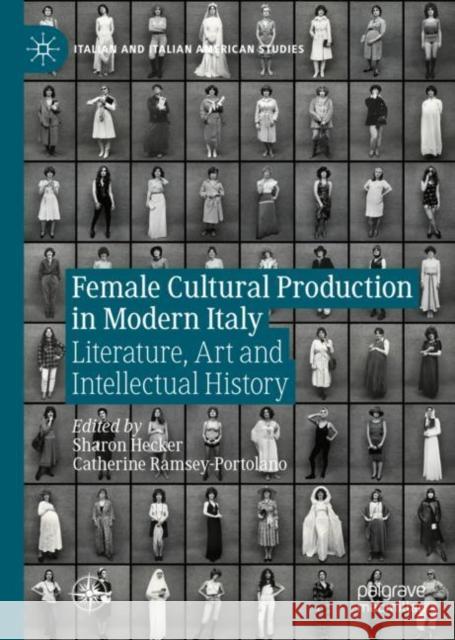Female Cultural Production in Modern Italy: Literature, Art and Intellectual History » książka
Female Cultural Production in Modern Italy: Literature, Art and Intellectual History
ISBN-13: 9783031148156 / Angielski / Twarda / 2023 / 467 str.
Female Cultural Production in Modern Italy: Literature, Art and Intellectual History
ISBN-13: 9783031148156 / Angielski / Twarda / 2023 / 467 str.
(netto: 536,72 VAT: 5%)
Najniższa cena z 30 dni: 501,19
ok. 22 dni roboczych.
Darmowa dostawa!
This book is the first critical interdisciplinary examination in English of Italian women’s contributions to intellectual, artistic, and cultural production in modern Italy. Examining commonalities and diversities from the country’s Unification to today, the volume provides insight into the challenges that Italian women engaged in cultural production have faced, and the strategies they have deployed in order to achieve their objectives. The essays address a range of issues, from women’s self-identification and public ownership of their professional roles as laborers in the intellectual and cultural realm, to questions about motherhood and financial remuneration, to the role of creative foreign women in Italy. Through critical analysis and direct testimony from new and typically marginalized voices, including an Arab-Italian writer, an Italian-Dominican filmmaker, and a transgender activist, new forms of ongoing struggle emerge that redefine the culturally diverse landscape of female intellectual and creative production in Italy today. The volume rethinks a solely national “Made in Italy” reading of the subject of female intellectual labor, demonstrating instead the wide network of influences and relationships that have existed for Italian women in their professional aspirations.
This book is the first critical interdisciplinary examination in English of Italian women’s contributions to intellectual, artistic, and cultural production in modern Italy. Examining commonalities and diversities from the country’s Unification to today, the volume provides insight into the challenges that Italian women engaged in cultural production have faced, and the strategies they have deployed in order to achieve their objectives. The essays address a range of issues, from women’s self-identification and public ownership of their professional roles as laborers in the intellectual and cultural realm, to questions about motherhood and financial remuneration, to the role of creative foreign women in Italy. Through critical analysis and direct testimony from new and typically marginalized voices, including an Arab-Italian writer, an Italian-Dominican filmmaker, and a transgender activist, new forms of ongoing struggle emerge that redefine the culturally diverse landscape of female intellectual and creative production in Italy today. The volume rethinks a solely national “Made in Italy” reading of the subject of female intellectual labor, demonstrating instead the wide network of influences and relationships that have existed for Italian women in their professional aspirations.











